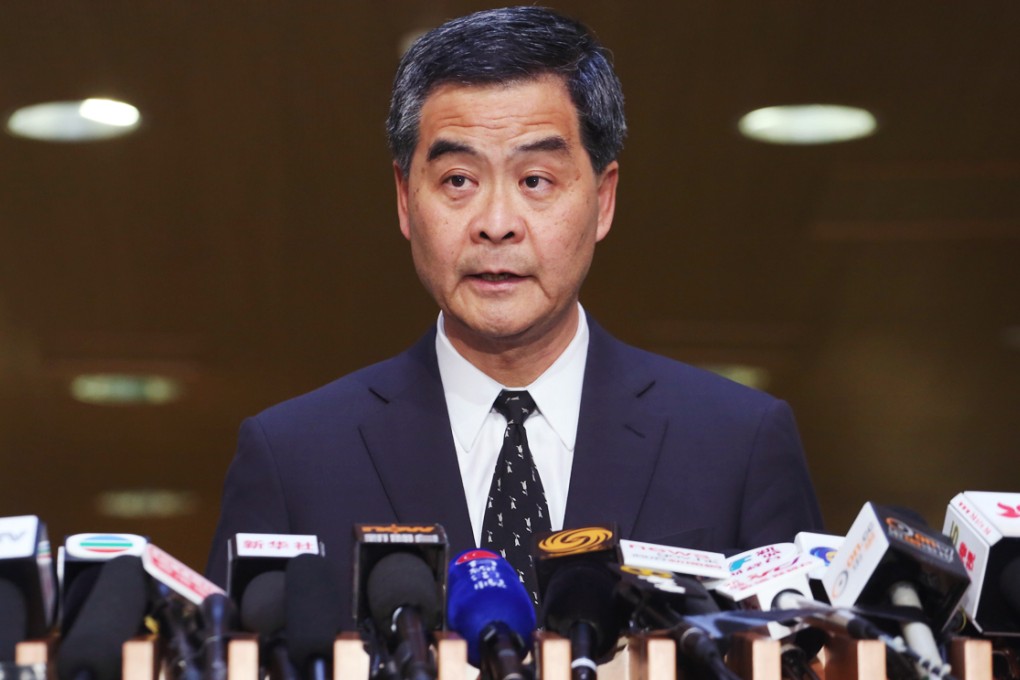Rare disagreement as CY Leung takes issue with Global Times editorial on Occupy poll
Chief Executive speaks out against state-run newspaper that belittled 700,000 voters in unofficial plebiscite as 'no match' for 1.3 billion

In a rare example of a top Hong Kong official not following Beijing's script, Chief Executive Leung Chun-ying yesterday said he disagreed with an editorial in the state-run Global Times newspaper which described the enormous turnout for Occupy Central's reform poll as "no match" for the 1.3 billion population of China.
Leung, who went on leave from yesterday until Friday, said it was wrong to put "the people of Hong Kong and China on confronting sides".
In a strongly worded editorial published on Monday, the Global Times warned that since "the Basic Law reflects the will of the whole nation … more than 1.3 billion people have the right to speak on Hong Kong's political reform".
Leung said that "no matter how many people voted", and no matter whether the number was "inflated", the majority of residents who took part were expressing their wish to elect the city's leader by universal suffrage in 2017.
The Global Times described the Occupy poll as "illegal", but Leung clarified that the people who voted would face no criminal liability.
However, he reiterated that public nomination "does not comply with the Basic Law", saying that there were no grounds for people to call for universal suffrage to be compatible with international standards.
"[The phrase] 'international standards' is not found in the Basic Law … Elections in Hong Kong must be conducted according to our actual situation and the [city's mini-constitution]."